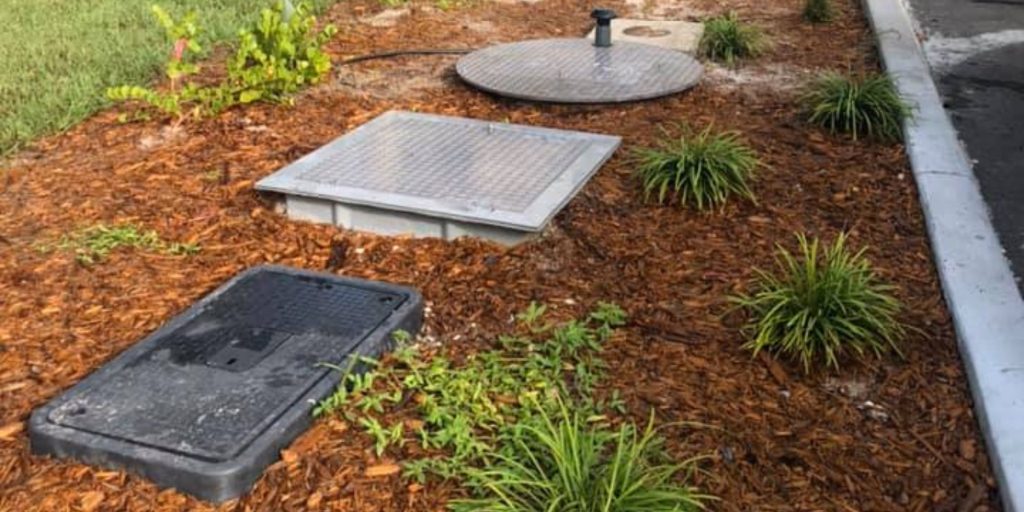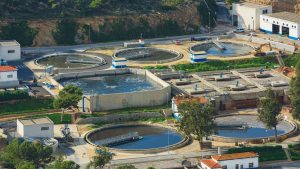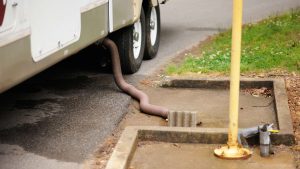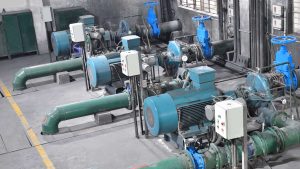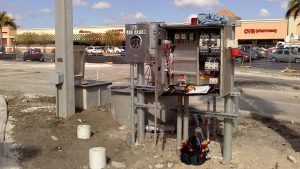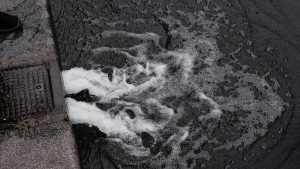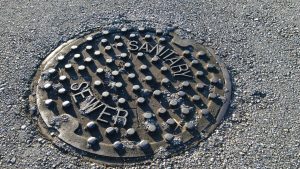Pungent odors from a property’s drainage system may indicate problems with its wastewater lift station. These smells can reduce indoor air quality and create a toxic environment for residents. Regular lift station cleaning from qualified technicians can reduce these smells.
What Causes Lift Station Odors?
Lift station odors typically originate from waste lodged in pipes or between internal components. Residents should be careful about the materials they flush down their drains to prevent these obstructions. For example, grease buildup and broken grinder pumps are two common problems that lead to foul smells:
- Grease buildup: A lift station grease cap can deplete oxygen levels in the system. As a result, hydrogen sulfide gas can escape through drain lines. Hydrogen sulfide smells like rotting eggs and can linger in the air without a proper lift station cleaning.
- Faulty or missing lift station grinder pump: These mechanisms break up solid waste in the lift station’s basin, allowing it to pass through the system. An obstruction can force poisonous gas up through the sewer lines and into the property.
Dangers of Ignoring Lift Station Odors
Foul odors coming from drain lines require professional lift station cleaning as soon as possible. Hydrogen sulfide and other harmful gasses can cause respiratory problems for humans and animals.
These pollutants can harm the internal mechanisms of the lift station. Excess gas pressure can cause drain pipes to expand or burst over time. Obstructions may also reduce the efficiency of pumps, causing waste accumulation in the basin and damaging variable frequency drive equipment.
Hydrogen sulfide gas can have a detrimental impact on the surrounding environment. Toxic fumes can degrade soil quality and penetrate the ozone layer.
How to Control Lift Station Odors
Regular lift station cleanings are the best way to increase the system’s life expectancy.
Technicians use high-intensity UV light to restore oxygen and hydrogen levels in the air space. These low-energy photocatalytic cells produce hydroxyl radicals (a chemical compound that dilutes harmful gasses). Photocatalytic cells can last up to three years and are some of the lowest maintenance odor control solutions available.
It may also be necessary to upgrade the lift station with individual scrubber units or biofilters. These products contain a mix of chemicals or sulfur-oxidizing bacteria to neutralize hydrogen sulfide and other odor-producing compounds in the system.
Frequent odor problems may indicate that the lift station is not the correct size for its industrial or residential applications. Replacement pumps or pipes could provide lift station odor control to prevent grease caps from forming.
Reliable Lift Station Maintenance
Hire our South Florida Lift Stations team for your next installation or cleaning. Our technicians have years of experience inspecting and maintaining these complex systems with world-class attention to detail. Whether you need an industrial or residential lift station repair, we can help.
Why wait to invest in a lift station cleaning from trusted experts? Contact South Florida Lift Stations in Ft. Myers, FL, today. Speak to a representative at 239-332-0041 for more information about wastewater lift stations.

